-
 Bitcoin
Bitcoin $84,503.0396
-0.26% -
 Ethereum
Ethereum $1,639.9033
1.40% -
 Tether USDt
Tether USDt $0.9998
0.00% -
 XRP
XRP $2.1454
-0.96% -
 BNB
BNB $584.9227
-0.39% -
 Solana
Solana $129.5837
-1.10% -
 USDC
USDC $1.0000
0.02% -
 TRON
TRON $0.2530
0.06% -
 Dogecoin
Dogecoin $0.1604
-3.16% -
 Cardano
Cardano $0.6380
-2.76% -
 UNUS SED LEO
UNUS SED LEO $9.3916
0.76% -
 Chainlink
Chainlink $12.8718
-0.80% -
 Avalanche
Avalanche $20.3150
0.41% -
 Stellar
Stellar $0.2404
-2.02% -
 Sui
Sui $2.2089
-3.82% -
 Shiba Inu
Shiba Inu $0.0...01218
-0.81% -
 Toncoin
Toncoin $2.8401
-1.67% -
 Hedera
Hedera $0.1647
-2.59% -
 Bitcoin Cash
Bitcoin Cash $326.8464
-5.81% -
 Polkadot
Polkadot $3.7405
-0.20% -
 Litecoin
Litecoin $76.9266
-2.88% -
 Dai
Dai $1.0001
-0.01% -
 Hyperliquid
Hyperliquid $15.5994
-1.02% -
 Bitget Token
Bitget Token $4.2932
-0.63% -
 Pi
Pi $0.7411
-0.92% -
 Ethena USDe
Ethena USDe $0.9990
0.00% -
 Monero
Monero $216.0000
4.11% -
 Uniswap
Uniswap $5.4278
-0.64% -
 OKB
OKB $53.3284
-0.96% -
 Pepe
Pepe $0.0...07401
0.70%
Why is an NFT called a "non-fungible" token?
NFTs are unique digital assets on a blockchain, representing items like art or virtual real estate, and their non-fungible nature adds significant value due to rarity and creator reputation.
Apr 11, 2025 at 06:15 am
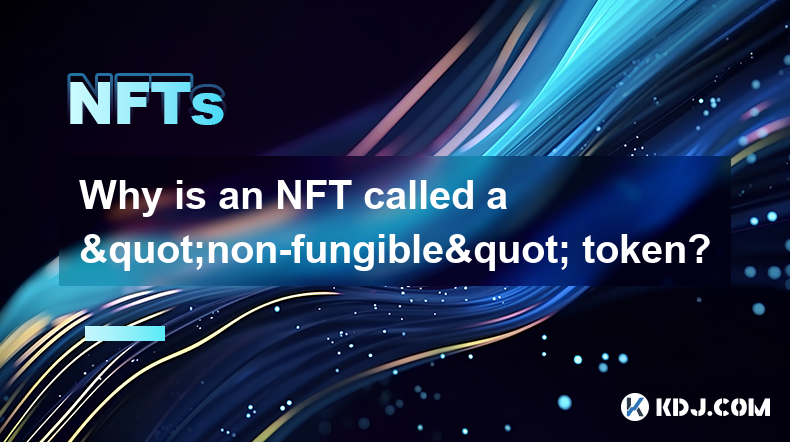
An NFT, or Non-Fungible Token, is a unique digital asset that represents ownership or proof of authenticity of a specific item or piece of content, typically stored on a blockchain. The term "non-fungible" is crucial to understanding the nature and value of these tokens. In this article, we will delve into the reasons why an NFT is called a "non-fungible" token, exploring the concept of fungibility and how it applies to NFTs.
Understanding Fungibility
Fungibility is a property of goods or assets that makes them interchangeable and indistinguishable from one another. For example, a dollar bill is fungible because one dollar can be exchanged for another dollar without any change in value or function. Similarly, cryptocurrencies like Bitcoin are fungible because one Bitcoin is equivalent to another Bitcoin.
In contrast, non-fungible assets are unique and cannot be exchanged on a one-to-one basis with another asset of the same type. Each non-fungible asset has distinct characteristics that set it apart from others. This uniqueness is the core reason why NFTs are called "non-fungible" tokens.
The Unique Nature of NFTs
NFTs are designed to represent unique digital items, such as artwork, music, videos, or even virtual real estate. Each NFT has a unique identifier that is stored on a blockchain, ensuring that it cannot be replicated or replaced by another token. This uniqueness is what makes NFTs non-fungible.
For instance, if you own an NFT representing a piece of digital art, that specific artwork is unique to your token. No other NFT can represent the same piece of art in the same way. This is different from fungible tokens like Bitcoin, where each unit is identical and interchangeable.
Blockchain and Uniqueness
The use of blockchain technology is essential in maintaining the non-fungible nature of NFTs. Blockchain provides a secure and transparent way to record the ownership and provenance of each NFT. Each token is associated with a specific set of data that cannot be altered or duplicated, ensuring its uniqueness.
When an NFT is created, or "minted," it is assigned a unique token ID and other metadata that describe the asset it represents. This information is stored on the blockchain, making it publicly verifiable and tamper-proof. This process ensures that each NFT remains distinct and non-fungible.
Examples of NFTs
To better understand why NFTs are called non-fungible, let's look at some examples:
- Digital Art: An artist can create a digital painting and mint it as an NFT. Each NFT representing the artwork is unique, and no other token can claim ownership of the same piece.
- Collectibles: NFTs can represent unique digital collectibles, such as virtual trading cards or in-game items. Each collectible is distinct and cannot be exchanged for another of the same type.
- Virtual Real Estate: In virtual worlds or metaverses, NFTs can represent ownership of specific parcels of land. Each parcel is unique and cannot be swapped with another.
These examples illustrate how NFTs are used to represent unique digital assets, reinforcing their non-fungible nature.
The Value of Non-Fungibility
The non-fungible nature of NFTs adds significant value to them. Because each NFT is unique, it can carry a different value based on its rarity, desirability, and the reputation of its creator. This is in stark contrast to fungible tokens, where the value is determined solely by the quantity and market demand.
For example, a rare digital artwork created by a well-known artist can command a high price because of its uniqueness and the artist's reputation. Similarly, a limited-edition virtual collectible can be highly valuable due to its scarcity and the demand from collectors.
Practical Applications of NFTs
NFTs have a wide range of practical applications beyond just digital art and collectibles. Here are some examples:
- Gaming: In video games, NFTs can represent unique in-game items, characters, or skins. Players can own, trade, and sell these items, adding a new layer of value and engagement to the gaming experience.
- Music and Entertainment: Musicians and entertainers can use NFTs to sell unique digital content, such as exclusive tracks, concert tickets, or behind-the-scenes footage. This allows fans to own a piece of their favorite artist's work.
- Real Estate: In virtual worlds, NFTs can represent ownership of virtual land or properties. These can be bought, sold, and developed, creating a new market for virtual real estate.
These applications demonstrate how the non-fungible nature of NFTs can be leveraged in various industries, providing new opportunities for creators and consumers alike.
Frequently Asked Questions
Q: Can NFTs be duplicated or copied?
A: While the digital content associated with an NFT can be copied, the NFT itself cannot be duplicated. Each NFT has a unique identifier on the blockchain, ensuring its authenticity and ownership. Copying the digital content does not transfer ownership of the NFT.
Q: How do NFTs differ from traditional digital files?
A: Traditional digital files can be easily copied and distributed, whereas NFTs are unique tokens on a blockchain that represent ownership of a specific digital asset. This ownership is verifiable and cannot be replicated, making NFTs distinct from regular digital files.
Q: Are all tokens on the blockchain non-fungible?
A: No, not all tokens on the blockchain are non-fungible. There are also fungible tokens, such as cryptocurrencies like Bitcoin and Ethereum, which are interchangeable and indistinguishable from one another. NFTs are a specific type of token designed to represent unique assets.
Q: Can the value of an NFT change over time?
A: Yes, the value of an NFT can change based on factors such as demand, rarity, and the reputation of its creator. Like any asset, the value of an NFT can fluctuate in the market, making it a potentially valuable investment or collectible.
Disclaimer:info@kdj.com
The information provided is not trading advice. kdj.com does not assume any responsibility for any investments made based on the information provided in this article. Cryptocurrencies are highly volatile and it is highly recommended that you invest with caution after thorough research!
If you believe that the content used on this website infringes your copyright, please contact us immediately (info@kdj.com) and we will delete it promptly.
- US President Donald Trump Issues Sharp Rebuttal to Information About "exceptions" to the Tariff Standoff with China
- 2025-04-15 00:50:13
- Mantra (OM) token recovery is the company's 'preeminent and primary concern', says CEO John Mullin
- 2025-04-15 00:50:13
- Shocked as Bitcoin Experienced a Record Decline After Trump's Tariffs Were Announced
- 2025-04-15 00:45:13
- Binance and Laser Digital Distance Themselves From Responsibility as Mantra (OM) Token Crashes 90%
- 2025-04-15 00:45:13
- Dawgz AI ($DAGZ): The Meme Coin with Real Utility Is Back and Ready to Boom
- 2025-04-15 00:40:13
- The International Monetary Fund is warning countries about an impending global recession
- 2025-04-15 00:40:13
Related knowledge
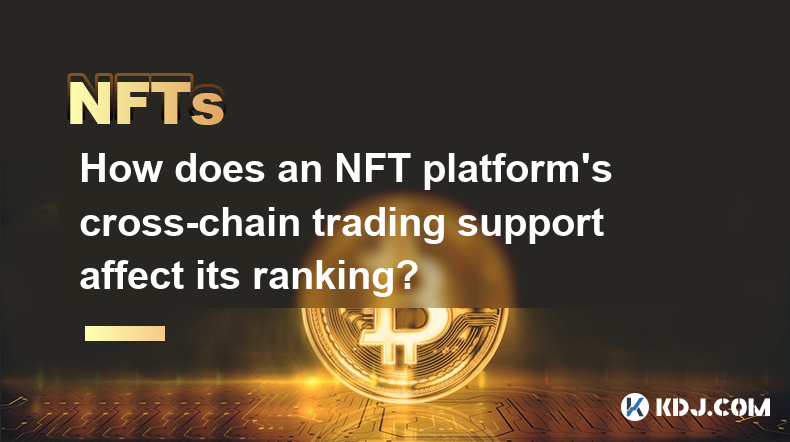
How does an NFT platform’s cross-chain trading support affect its ranking?
Apr 14,2025 at 04:49pm
The impact of an NFT platform's cross-chain trading support on its ranking is a multifaceted topic that delves into the technical capabilities, user experience, and market dynamics of the platform. Cross-chain trading refers to the ability of an NFT platform to facilitate the exchange of non-fungible tokens across different blockchain networks. This fea...
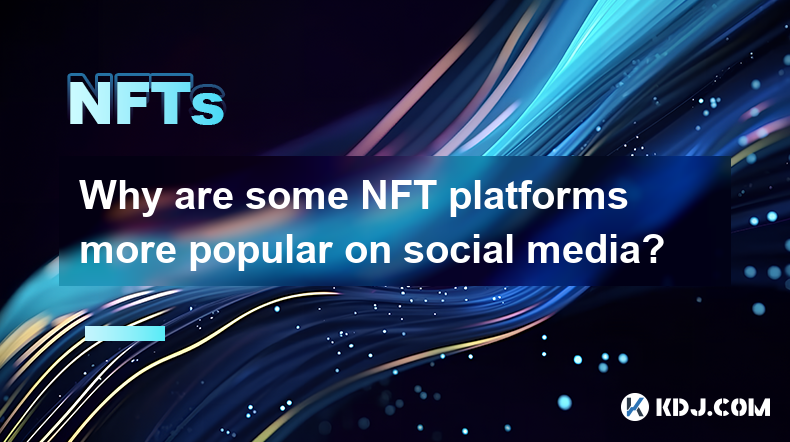
Why are some NFT platforms more popular on social media?
Apr 15,2025 at 01:00am
The popularity of NFT platforms on social media can be attributed to a variety of factors that influence their visibility, engagement, and overall appeal to users. Understanding these factors can provide insights into why certain platforms capture more attention and interaction on social media channels. User Experience and InterfaceUser experience (UX) ...
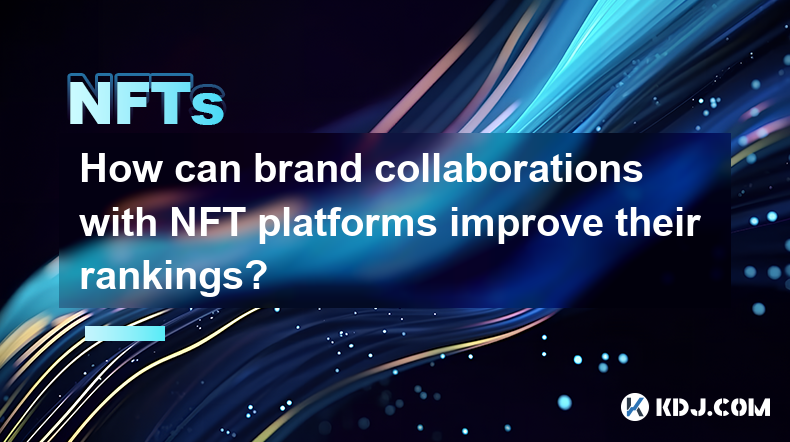
How can brand collaborations with NFT platforms improve their rankings?
Apr 15,2025 at 01:35am
Brand collaborations with NFT platforms have become increasingly popular in the cryptocurrency circle, offering a unique way to enhance visibility and rankings. By leveraging the strengths of both brands and NFT platforms, these collaborations can drive engagement, increase user base, and ultimately improve rankings on various metrics. In this article, ...

Which NFT platforms perform best in virtual land transactions?
Apr 14,2025 at 02:56pm
The NFT market has seen significant growth in virtual land transactions, with several platforms emerging as leaders in this space. Decentraland, The Sandbox, and Somnium Space are among the top performers, each offering unique features and opportunities for users. In this article, we will delve into these platforms, examining their strengths, transactio...
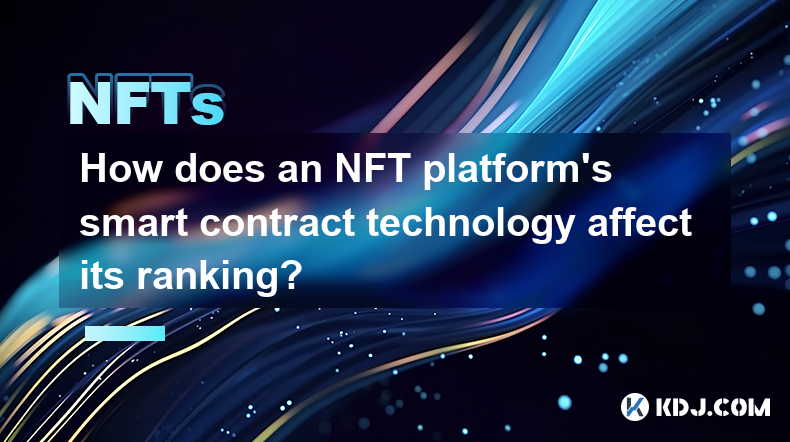
How does an NFT platform’s smart contract technology affect its ranking?
Apr 14,2025 at 11:42pm
Introduction to NFT Platforms and Smart ContractsThe world of Non-Fungible Tokens (NFTs) has seen explosive growth, with platforms like OpenSea, Rarible, and SuperRare becoming household names in the crypto space. At the heart of these platforms lies smart contract technology, which plays a crucial role in their operation and, consequently, their rankin...
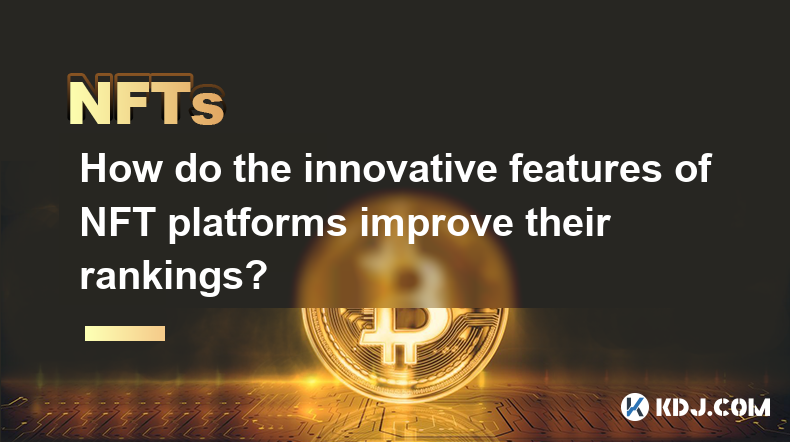
How do the innovative features of NFT platforms improve their rankings?
Apr 15,2025 at 12:42am
The world of Non-Fungible Tokens (NFTs) has seen rapid growth and evolution, leading to the emergence of numerous NFT platforms. These platforms vary widely in terms of features and functionality, which directly impacts their rankings and popularity within the cryptocurrency community. Innovative features play a crucial role in distinguishing top-perfor...

How does an NFT platform’s cross-chain trading support affect its ranking?
Apr 14,2025 at 04:49pm
The impact of an NFT platform's cross-chain trading support on its ranking is a multifaceted topic that delves into the technical capabilities, user experience, and market dynamics of the platform. Cross-chain trading refers to the ability of an NFT platform to facilitate the exchange of non-fungible tokens across different blockchain networks. This fea...

Why are some NFT platforms more popular on social media?
Apr 15,2025 at 01:00am
The popularity of NFT platforms on social media can be attributed to a variety of factors that influence their visibility, engagement, and overall appeal to users. Understanding these factors can provide insights into why certain platforms capture more attention and interaction on social media channels. User Experience and InterfaceUser experience (UX) ...

How can brand collaborations with NFT platforms improve their rankings?
Apr 15,2025 at 01:35am
Brand collaborations with NFT platforms have become increasingly popular in the cryptocurrency circle, offering a unique way to enhance visibility and rankings. By leveraging the strengths of both brands and NFT platforms, these collaborations can drive engagement, increase user base, and ultimately improve rankings on various metrics. In this article, ...

Which NFT platforms perform best in virtual land transactions?
Apr 14,2025 at 02:56pm
The NFT market has seen significant growth in virtual land transactions, with several platforms emerging as leaders in this space. Decentraland, The Sandbox, and Somnium Space are among the top performers, each offering unique features and opportunities for users. In this article, we will delve into these platforms, examining their strengths, transactio...

How does an NFT platform’s smart contract technology affect its ranking?
Apr 14,2025 at 11:42pm
Introduction to NFT Platforms and Smart ContractsThe world of Non-Fungible Tokens (NFTs) has seen explosive growth, with platforms like OpenSea, Rarible, and SuperRare becoming household names in the crypto space. At the heart of these platforms lies smart contract technology, which plays a crucial role in their operation and, consequently, their rankin...

How do the innovative features of NFT platforms improve their rankings?
Apr 15,2025 at 12:42am
The world of Non-Fungible Tokens (NFTs) has seen rapid growth and evolution, leading to the emergence of numerous NFT platforms. These platforms vary widely in terms of features and functionality, which directly impacts their rankings and popularity within the cryptocurrency community. Innovative features play a crucial role in distinguishing top-perfor...
See all articles























































































